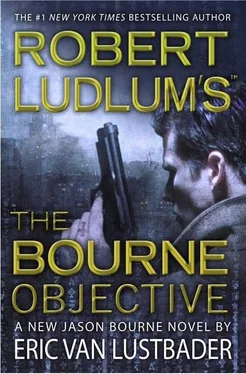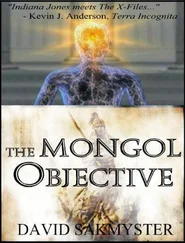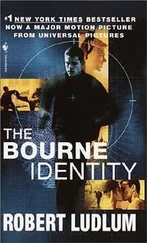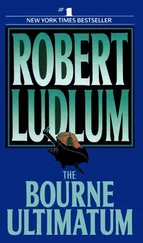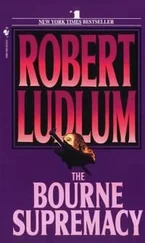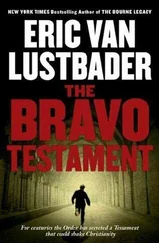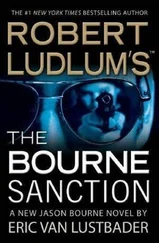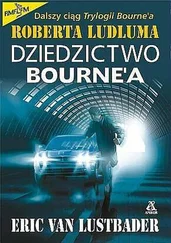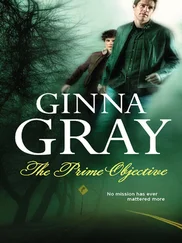Moira found herself leaning forward in anticipation. “And?”
He shrugged. “We cannot go forward, you and I, until our deal is ratified. Will you or won’t you agree to find my laptop?”
Moira felt herself breathe, but it was as if she were detached from her body, as if she were looking down at this scene from a height. This was it: She could say no, even now. But she found that she didn’t want to walk away from this assignment. She needed work, needed a new door opened for her, and since this man had given her information that could save her new company from ruin she thought she might as well say yes.
“All right,” she heard herself say. “But I want double my usual fee.”
“Done.” Essai nodded, as if he was expecting this answer all along. “Most gratifying, Ms. Trevor. I thank you from the bottom of my heart.”
“Thank me when I’ve returned your laptop,” she said. “Now about Noah.”
“Your Mr. Perlis was something of a pilot fish. That is to say, he thrived on going after other people’s initiatives.” He spread his hands. “But I’m not telling you anything you don’t already know, am I?”
Moira shook her head.
“This was no exception. Mr. Perlis came to the game a bit on the late side.”
A warning bell went off in Moira’s head. “How late?”
“The mission to find and obtain my notebook by illegal means was the brainchild of CI. More accurately, the small DoN-”
“DoN?”
“Dead of Night,” Essai explained. “This term isn’t known to you?” He waved a hand: It was of no matter. “The DoN arm known as Treadstone.”
Moira felt stunned. “Alex Conklin wanted your laptop?”
“That’s right.” Essai sat back as the appetizers of prawn salad, the heads still on, were placed in front of them. The server vanished without a word.
“And he engineered the raid?”
“Oh, no, not Conklin.”
Essai took up his fork with his right hand and for a moment concentrated on deftly separating the heads from the bodies of his prawns. With one head still impaled on the tines of his fork, his gaze met hers again in such a shocking manner that she instinctively moved back, as if scrambling out of the line of fire.
“It was your friend Jason Bourne who came into my house, where my family eats and sleeps and laughs.”
In that frozen moment, while her heart seemed to cease beating, she knew the dislocated feeling for what it really was: the terrifying moment when your car’s brakes fail and, accelerating beyond your control, you see another vehicle about to slam into you head-on.
“Where my wife sews my clothes, where my daughter rests her head on my lap, where my son is day by day learning to be a man.” A dark vibration, as of a vengeance-filled scream, turned his voice ragged. “Jason Bourne violated every sacred tenet of my life when he stole my laptop.” He lifted the shrimp head as if it were a banner on the field of war. “And now, Ms. Trevor, by all that’s holy you’re going to get it back.”
THE CITY OF London, just over a mile square, is the historic core of what is now London proper. In medieval times it encompassed London, Westminster, and Southwark, guarded by a defensive wall built by the Romans in the second century, around which the modern metropolis threw its many arms like a spider extending its web. These days the City, slightly expanded, was the financial hub of London. Aguardiente Bancorp, being largely a commercial rather than a retail bank, had its one and only branch on Chancery Lane, just north of Fleet Street. From its large, stately windows, which faced southwest, Bourne could imagine rising the Temple Bar, the historic gate that a century ago linked the City, the financial center, to the road to Westminster, London’s political seat. The Temple Bar, named after the Temple Church, once home of the Knights Templar, was soberly presided over by statues of a griffin and a pair of dragons. Bourne did not, of course, look like Bourne, but rather Noah Perlis, the result of having made a number of purchases at a theatrical makeup shop in Covent Garden.
The gray stone and black marble interior of the bank was equally sober, as befitted an institution that counted as its clients a majority of the international companies doing business in the City. The ecclesiastical vaulted ceiling was so high, it seemed hazed like the sky outside-which, having delivered its burden, hovered now like the ravens in the Tower of London. Bourne crossed the softly echoing floor to the Safe Deposit desk, where a gentleman straight out of a Charles Dickens novel stood with shoulders as thin as a coat hanger, a sallow complexion, and a pair of beady eyes that looked like they had seen everything life had to offer pass them by.
Bourne introduced himself using Perlis’s passport as proof of identity. The Dickens cartoon pursed his lips as he squinted at the fine print, his liver-colored hands tilting the open passport into the light. Then abruptly he closed it, said, “One moment please, sir,” and vanished into the mysterious interior of the bank.
In the low glass barrier guarding each side of the sallow clerk’s window Bourne watched the dim reflections of the people-both customers and bank personnel-behind his back, moving about their business. As he did so, his gaze fell upon a face he had seen before. He’d glimpsed it once inside the shop on Tavistock Street earlier this morning. There was absolutely nothing unusual about it, in fact it was ordinary in every way imaginable. Only Bourne, and perhaps a handful of others with similar experiences and skills, would detect the intentness of the gaze, the way the eyes sliced and diced the vast lobby of the bank into a neat mathematical grid. Bourne watched the eyes moving back and forth in a familiar pattern. The man was figuring possible pathways to him, distances of escape routes to the exits, the placements of the bank guards, and so on.
A moment later the Dickens cartoon returned with no discernible change in his face, which remained as closed as the bank’s vault.
“This way, sir,” he said in a watery voice that reminded Bourne of a man gargling. He opened a panel in the marble half wall, and Bourne stepped through. He shut it with a soft click of a locking mechanism before leading Bourne between rows of polished wooden desks at which sat a platoon of men and women in dark, conservatively cut suits. Some were talking on phones, others addressing customers who sat on the other side of their desks. None of them looked up as the sallow clerk and Bourne passed them by.
At the end of the regiment of desks, the Dickens cartoon pressed a buzzer beside a door with a pebbled-glass panel that revealed the light from within but nothing else. The buzzer was answered, the door swung open, and the clerk stood aside.
“Straight ahead, then left. The corner office.” And then with a vicious little smile: “Mr. Hererra will receive your request.” He even talked like a Dickens character.
With a quick nod, Bourne took his left and proceeded to the corner office, whose door was closed. He rapped on it, heard the one word, “Come,” and entered.
On the other side of the door he found himself in a large, expensively furnished office with a stupendous view of the bustling City, both its historic spires and its odd post-modern skyscrapers, the past and future commingling, it seemed to Bourne, uneasily.
In addition to the usual practical office ensemble of desk, chairs, credenzas, cabinets, and the like was a clubby section off to the right dominated by a leather sofa and matching chairs, a glass-and-steel coffee table, lamps, and a sideboard set up as a bar.
As Bourne walked in Diego Hererra, looking even more like his father than he did in the photos, rose, came out from behind his desk, and with a big smile extended his hand for Bourne to shake.
Читать дальше
